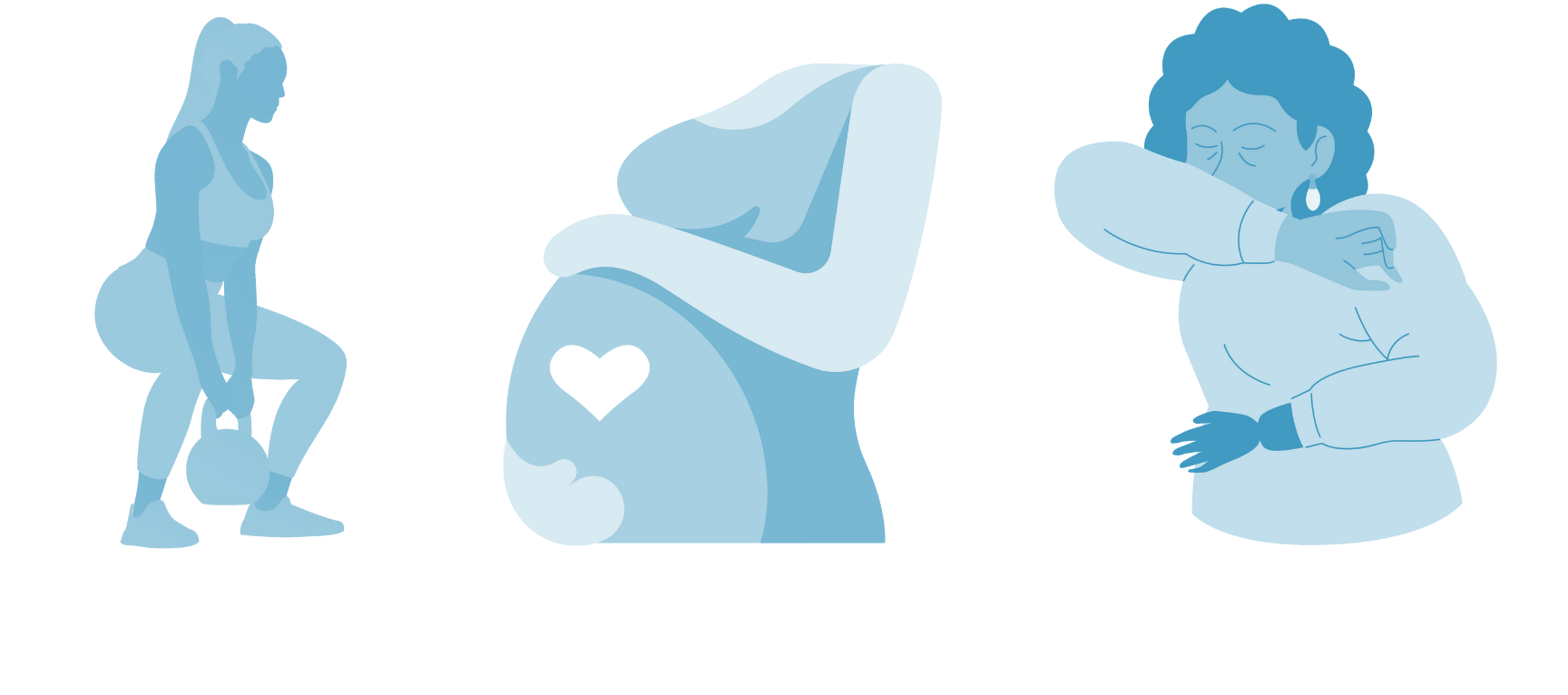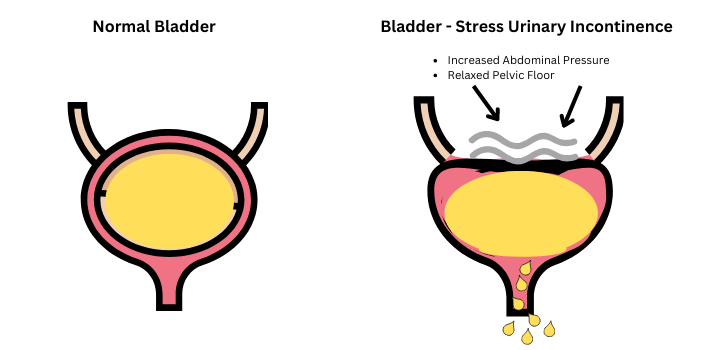What is Stress Urinary Incontinence?
Stress urinary incontinence (SUI), sometimes known simply as stress incontinence is the leaking of a small amount of urine due to a sudden increase in abdominal pressure that puts stress on your bladder. Examples include coughing, sneezing, laughing or during exercise when you run, jump or lift heavy weights.

When you cough or sneeze, healthy pelvic floor muscles will reflexively close the urethral sphincter which prevents urine leaking. If your muscles are too weak or if you have poor muscle coordination, urine leaking will occur because the sphincter will not close fast enough. On the other hand, if your pelvic floor muscles have too much tension, your body may not be able to accommodate the sudden change in pressure which can also result in urine leaking when you cough or sneeze.

Who is affected by Stress Incontinence?
Stress Urinary Incontinence primarily affects women and is the most common type of incontinence. Men can also experience SUI, most commonly after prostate surgery. Stress Urinary Incontinence can affect individuals who are:
- Athletes with tight pelvic floor muscles when running, jumping or lifting
- Pregnant: as the baby is growing
- Postpartum: due to changes in the pelvic floor during pregnancy and birth (forceps, tearing etc)
- Post-menopausal
- Post-gynaecological or urinary surgery
- Chronic coughers
- Chronic strainers (ie. with constipation)
- Smokers
- Obese
How can pelvic floor physiotherapy help?
Leaking small amounts of urine can be embarrassing and can stop you from doing activities that you enjoy such as exercising and spending time with others outside the security of your home.
By completing an assessment with an experienced physiotherapist with specialized training in the pelvic floor, we can help provide:
- A diagnosis to determine factors contributing to your symptoms
- Education and muscle training to effectively use your pelvic floor muscles for
- Relaxing
- Lengthening
- Strengthening
- Coordination
- Power
- Learn how to confidently and effectively perform exercises that help you close your urethral sphincter to prevent urine leaking



